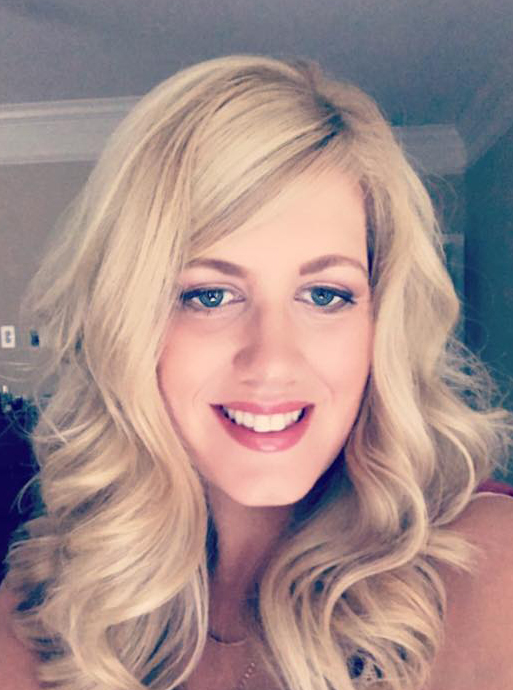Grit & Grace: Being There for Someone With Cancer
Love in Longsuffering
I see you. I know you. I am you. I know that you are in agony, you’re overwhelmed. You feel out of control, yet you feel like you don’t have a right to own this pain. You don’t have cancer, right? No, but you do have to watch someone you love suffer. It’s not your story, but it is…it may be a little different; but your feelings, your pain, and your part in this are valid and important and need to be talked about.
I don’t want this to be another post like, “The Top 10 Things You Can Do When Your Loved One Has Cancer,” or how about, “What Not to Say to Someone with Cancer.” Google it—I promise there are hundreds of those out there if you need ideas. The truth is that there is no magic formula for loving someone with cancer. As humans, the things we are all connected by (regardless of gender, race, or any other identifying attribute) are love and suffering…maybe even longsuffering. Longsuffering is not a word used much anymore, but it literally means “to patiently endure a lasting hardship.” I don’t think there is a more accurate word to portray the fight against cancer. These qualities are what allow you to take on this unique position of loving and supporting someone, yet hating the disease that is attacking their body. Beyond that, there are no guidelines for how to watch and care for someone you love endure one of the hardest things in life.
Don’t Know Where to Start?
Be Realistic—let’s be honest, the emotional rollercoaster of cancer is tricky and unpredictable. The good days and bad days can be difficult to navigate. Try to take the patient’s lead and be flexible. They will let you know what they are ready to talk about something, so don’t push by asking too many heavy questions. Don’t take it personally if they bite your head off, they are not upset with you. If all else fails, just be there. Listen when they want to talk. Let them know you are available and thinking of them—that leaves room for them to open up if they need to.
Empower Patients to Use Their Own Voice--The onslaught of information is overwhelming, especially when it comes to treatment decisions. Be an advocate for your loved one and do your research, but don’t be forceful. Guide them, but allow them to make the decisions when it comes to their care. So much control has been stripped from them, and they need to feel empowered.
Do Something Kind--Don’t underestimate the power of something small—a handwritten note, a meal dropped off on a doorstep, gifting books or movies. Take their kids for ice cream or give a gift card for something relaxing and rejuvenating (even if it’s for the patient’s spouse or caregiver). These things seem insignificant, but you never know what could lift someone’s spirits. Some people are not comfortable talking or listening, but these non-invasive gestures still go a long way.
What Works for Me
Working with cancer patients every day provides me with a unique perspective. I have offered support in many different ways to hundreds of patients in my time here, but I have also been a daughter, a granddaughter, a niece, a friend, and a co-worker to so many people I love who have suffered with cancer. What I have learned is that each person requires different things, whether based on their level of health or the nature of their personalities. I have learned to trust myself. I have to trust that I know my people well enough to communicate and assess their needs. And when our emotions muddy our communication--I have to be honest, offer what I can, and leave space and time to address needs as they arise.
For example, I have a friend who has been living with and actively fighting cancer for 10 years now. It has never fully gone into remission, and this person has been undergoing treatment almost constantly the entirety of the 10 years. The cancer seemed relatively stable, and the normality of day to day living became bearable. Then something shifted—something changed, and the reality was that the cancer might be spreading. The anxiety of what could be happening became excruciating. I didn’t know what to say or do. I certainly couldn’t fix this, but what I could do is listen, validate and speak truth. I sat with her; I prayed with her; and we talked about the reality of the situation—what the next step might look like. For her, this was helpful. She needed to know that even though she was moving to the next step, this was not the last step in her journey. And then we ate chocolate…because chocolate helps most things.
What Works for You?
We can all use support, so let us know how you feel and what has worked best for your situation. Or maybe something didn’t turn out how you thought—we would love to hear your story. How have you held onto love in the long-suffering journey of cancer?
The most important thing is that you know you are not alone. Even as the person loving someone with cancer, you cannot bare this weight by yourself. As clichéd as it sounds, it is called a journey for a reason. It can be long, and there can be many paths from which to choose. It’s not selfish to take care of yourself. Find a support group, join a yoga class, start journaling (See Raylen's blog to get started in a journaling practice), get a massage (you get the idea).
If you need resources or suggestions, don’t hesitate to call us at Tunnell Cancer Center (302-645-3087). We will get you where you need to be. Share your story in the comments.

